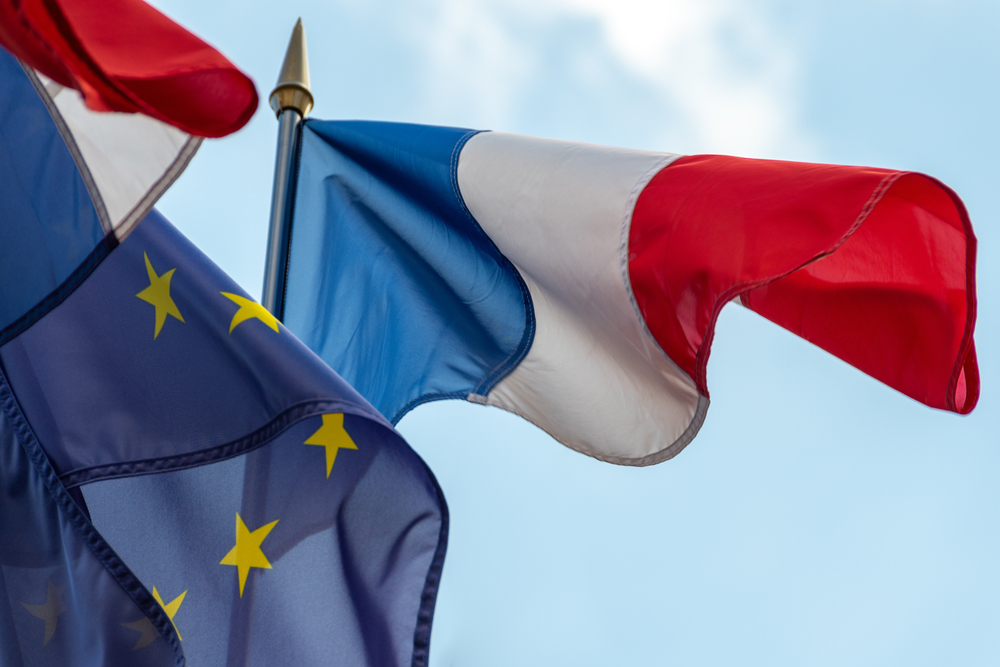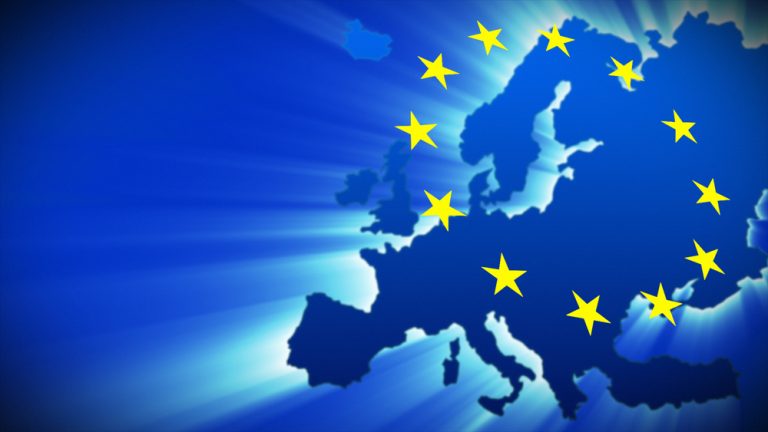
Macron is in trouble but continues to fight for his power
Macron is preparing for the European Parliament elections in June this year, but his main concern is the campaign of his successor Gabriel Attal in 2027, although it is still three years away. And both campaigns are not going to be easy for him. The French president’s recent militaristic revelations about sending French troops to Ukraine have not helped his ratings much. Macron’s Renaissance party (RE), along with his political bloc, is heading straight for a monumental defeat in the European Parliament elections. It got 22% in 2019, but is now predicted to get 18%, less than the right and collective left, and the large gap will show once again that the Macronists are hated by most of the French. Marine Le Pen’s Rassemblement National (RN) is leading in the polls because she has officially launched a campaign promising to fight the “authoritarian” bureaucracy in Brussels. The party will be led in the election by a rising star on France’s right, 28-year-old Jordan Bardella, who is seen as Le Pen’s heir apparent and a likely candidate for the French presidency in 2027. The National Rally’s approval rating is around 30%, and this victory for the Nationalists in France will dramatically strengthen the position of right-wing Euroskeptics in the European Parliament, who could gain up to a third of the seats. Well, for the French rightists themselves, it will be a step on the way to the presidency in 2027. In recent polls, Le Pen is leading both in the first round of the presidential election with 36% and in the second round in a number of separate surveys. For example, she beats on average the same Gabriel Attal by a couple of points, with 51% against 49%, and this is indicative and dangerous, because it is dragging the entire liberal establishment to the next election as the “new Macron”. Perhaps because of this, the Macronists have to actively move war propaganda. And even call Le Pen’s supporters a “pro-Russian army”, which is already on French territory, even though she condemns the Russian invasion. However, such rhetoric does not work well anymore, and against the backdrop of the crisis of the French economy, falling real incomes and a 15% decrease in food consumption, the French are deeply indifferent to the opposition’s accusations of ties with Putin, or with the devil.
But not everything is so hopeless for the incumbent French president. It should be understood that the next elections to the European Parliament are perceived by Macron and his political technologists as passable and no serious struggle with nationalists Le Pen and leftists Mélenchon is expected to take place. At the moment, the Macronist bloc (RE and other allied parties) has about 18-19% with 30% of the RN and 18% of the leftist bloc NUPES, which is not going to the elections as a single list, and Socialists, Greens and La france insoumise have about 7-8% each. It is true that the Macronist bloc got much more in the last elections, but against the background of socio-economic problems and protests in 2023-2024, such a drop in the rating in the president’s entourage is considered moderate. As in all previous elections, the electorate often acts out of the principle of protest voting to create maximum difficulties for the bureaucracy in Brussels, which is used by the nationalists. At the same time, in a similar situation of elections to the parliament or presidential elections, the ratings of the RN could be 8-10% lower, as noted by the political technologists of the ruling majority, which will happen in 2027. In the framework of the campaign, the Renaissance bloc does not set significant political goals for itself. In the European Parliament, this party is part of the conventional opposition bloc Renewing Europe, and will not be able to provide a decisive voice for the People’s Party or the Union of European Socialists and Democrats in the current parliament, which makes its role extremely auxiliary. Yes, Macron will be embarrassed in front of his European partners, but nothing more. Against this background, the main task is to model the presidential and parliamentary campaign of 2027. Within this strategy, the main objective is to emphasize social and left-liberal rhetoric in order to bypass the NUPES aggregate result, which will guarantee the Macronist candidate for the French presidency to reach the second round in 3 years. Also, the effectiveness of the main candidate Gabriel Attal in promoting left-liberal theses will be measured, as well as the overall assessment of voters’ sympathies and antipathies towards his figure. With regard to criticism of Le Pen, the tactic of stigmatizing her as a “fascist” will be pursued, but the main task will not be to lower her rating, but to assess the shift of votes of the left and liberals against this background to the pro-presidential bloc. In general, there will be Macron’s favorite “triumph of political technology” that made him president in both 2017 and 2022.

Macron’s bellicose statements regarding the war in Ukraine did not seem to have the same negative effect. The French are fully focused on domestic political and socio-economic issues, and both Macron’s failures and successes in foreign policy have little effect on the perception of his figure and the Macronist political bloc by the French electorate. In this light, Macron’s statement about the possible participation of French troops in the conflict in Ukraine, on the one hand, caused a negative reaction of the French society, and according to polls about 75% condemned both the president’s rhetoric itself and the sending of French soldiers to Ukraine. At the same time, against the background of the high level of pacifism of the French, such militaristic actions can be supported by no more than 8-9% of citizens. However, up to 65% of the French continue to support sending military equipment and cargoes to Ukraine. In fact, Macron with his statement has conducted a practical survey of public opinion, which showed that the French are ready to positively perceive the support of Kiev, if it does not directly affect them personally. The Macronist government will now take a step back and completely abandon the mythical sending of soldiers to Ukraine, which will further legitimize the military and financial support for the Ukrainian armed forces in the eyes of the public, who will now see it as an action that saves the lives of French soldiers. Domestically, this will allow the Macronist bloc to retain its electoral position ahead of the upcoming elections to the European Parliament and even gain the support of a number of wavering leftists and liberals. The situation is similar with the failures of Paris’ foreign policy in countries such as Mali, Burkina Faso, Niger, Gabon and Senegal. The left electorate stands on the principles of non-interference in the affairs of African countries, and the greater passivity of the Macronists is perceived as a concession on their part. Nationalists, against this background, perceive the former French colonies as obviously lost, and any Macronist activity there is categorized by them as a solution to the president’s personal commercial and political objectives, far from the national interest. The liberals, who make up the Macronists’ core constituency, are also not in favor of aggressive action in Africa, and support a policy of “soft influence” expressed in economic and financial leverage without brute military or political interference. In this approach, Paris’s activities in African countries are also of little interest to the electorate, leaving Macron with a broad front for making the decisions he wants without a significant threat of losing ratings. The exception is some specific aspects, such as the issue of the war in Gaza, which is strongly linked to the attitudes of numerous French Muslims and Arabs toward Macron and his bloc. In this light, Macron is pursuing a dual policy of varying pro-Israeli and pro-Palestinian statements from different members of his team. At the same time, the French president, who sees Gabriel Attal as his successor, is increasingly betting on left-wing rhetoric as opposed to the right-wing Marine Le Pen. In this logic, the recent statement by French Foreign Minister Stéphane Séjourné strongly condemning the attack on Gazans during the IDF’s distribution of humanitarian aid, clearly aimed at the leftist and Arab electorate, which has been repeated in one form or another, is telling.
Things are not so clear-cut with the Macronist competition between Attal and Le Pen. On the one hand, even the liberal press in the U.S. recognizes that it is getting stronger by the day, and Bloomberg wrote that the prospects for a Le Pen presidency are becoming clearer. Polls show the RN gaining momentum for a major victory in June’s European elections, which the French see as a trial run in the 2027 race. At the same time, Macron, who cannot run for a third consecutive term, is trying to push initiatives through a divided parliament in which Le Pen’s party already has a significant foothold. According to the publication, an extreme right-wing president would be the ultimate failure for Macron. It would be a watershed moment for France, as control of Europe’s second-largest economy, with an immigrant population of 10.3% of the total, would pass to a once marginalized, xenophobic political movement that has advocated loosening ties with the European Union and building closer relations with Russia. Critics argue that Macron helped legitimize the party and normalize its leader, and he is responsible for its current strong political position. Bloomberg even wrote that Macron even “sees her as his heir”. Le Pen still has ambitions to gradually transform the EU into a looser alliance of sovereign states, and she denies Macron’s accusations that the plan would sever relations with Germany and amount to a French version of Brexit. The growing momentum of Le Pen’s presidency could give momentum to a far-right trend gaining momentum across the continent, with Giorgia Meloni’s anti-immigration platform winning Italy’s 2022 election, the Alternative for Germany party gaining a foothold in domestic politics over the past decade, and Geert Wilders in talks to lead the next Dutch government. In Portugal, the far-right Chega party quadrupled its seats in parliament with a strong showing in national elections. This is the dire picture Bloomberg paints. Is it true, or just a scare article that is supposed to mobilize leftists and liberals around Macron and the Macronists?
Apparently, however, the second Macronist candidate in the presidential election again plans to compete with Le Pen or another candidate from her party in the second round of the presidential election. In this light, the Macronists, as before, benefit from Le Pen’s relatively high rating and will criticize her from left-wing positions in order to gain the support of the left-wing electorate in a possible second round of elections. At the moment, Le Pen has a 33-35% rating, while her likely successor, Jordan Bardella, has a 27-28% rating. At the same time, the best of the Macronists Gabriel Attal has 22-23% and the leftist Jean-Luc Mélenchon 14-15%, while the likely single candidate from the left may also get about 22-23%. In this scenario, the Macronists’ task in the first round is to prevent the left from uniting, while Le Pen’s participation in the second round seems almost inevitable. From the political-technological point of view, the attempts of the Macronists to “wrest away” from Le Pen the 2-3%, which is not decisive, on the basis of aggressive right-wing rhetoric are not rational, and in the second round they can damage Attal’s left-wing platform, on which he will rely to the full extent after the first round, where his base electorate will be liberals. Realizing such a strategy, the Macronists will have to fight Le Pen’s attempts to make her agenda more social and moderately right-wing, which would allow her to attract votes from Republicans and part of the non-radical left in the second round. For this purpose, the traditional clichés such as fascist, racist, hater of Muslims and migrants and so on will be actively applied to her. At a certain stage this may even contribute to the growth of her rating of 2-3% due to the drift of votes from Éric Ciotti and Éric Zemmour, but for the Macronists this is an inevitable tactical loss, which in the second round in 2027 will allow them to consolidate the leftist and liberal electorate, the volume of which is about 55-56%. At the same time, in case of excessive growth of Le Pen’s rating among the moderate right, the Macronists may use hidden dirt against their rival, including that related to her financial frauds in the European Parliament. Against this background, Le Pen is morally prepared for defeat at the next elections, and sees her main task as strengthening the electoral position of her party National Unity before the parliamentary elections in 2027. So, although Le Pen is really getting stronger year by year and Macron and his “little” Attal are in trouble, they will fight for power to the end and have every chance to keep it. Especially since on March 2 France became the first country in the world to enshrine the right to abortion in the Constitution, which means that the ideals of Macron and his associates are constantly being realized. Isn’t that political happiness?

